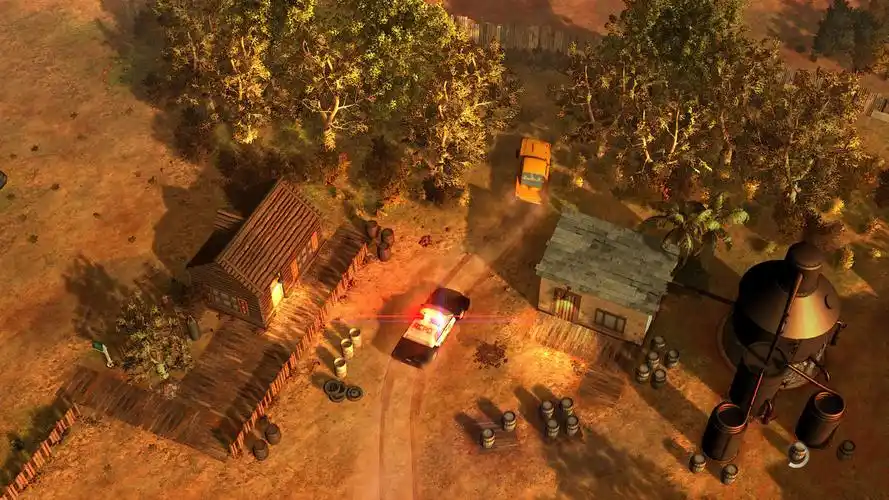The Ultimate Guide to Deep Game News Literacy
In today’s fast-paced digital world, video game news is everywhere—from social media snippets to in-depth reviews and live streams. Yet, not all information is created equal. With the rise of clickbait, biased reviews, sponsored content, and misinformation, the ability to critically analyze and interpret game news has never been more important. This guide will help you develop deep game news literacy—a skill set that allows you to navigate the complex landscape of gaming journalism with clarity and confidence.
What Is Game News Literacy?
Game news literacy is the ability to identify, evaluate, and contextualize information related to video games. It involves:
- Understanding the sources of game news
- Recognizing bias and commercial influence
- Distinguishing between news, opinion, and advertising
- Verifying facts and claims
- Placing information within a broader cultural and industrial context
Deep literacy goes beyond surface-level consumption—it encourages critical thinking and informed engagement.
The Anatomy of Game Journalism
To become news-literate, you must first understand the ecosystem of game journalism. Major types of sources include:
- Mainstream Outlets (e.g., IGN, GameSpot)
- Independent Content Creators (e.g., YouTube critics, podcasters)
- Developer Direct Communication (e.g., blogs, patches, Discord announcements)
- Social Media & Forums (e.g., Twitter, Reddit)
Each has its own strengths, weaknesses, and potential biases.
Recognizing Bias and Influence
Bias in games media can take many forms:
- Corporate Influence: Advertising partnerships, sponsored content, and exclusive access can affect coverage.
- Cultural and Ideological Bias: Writers and outlets may have specific perspectives that shape their reviews and news choices.
- Click-Driven Incentives: Sensationalist headlines (“controversy,” “exclusive,” “shocking”) are often designed to generate clicks rather than inform.
Always ask: Who is behind this message? What might they gain?

Differentiating Between News, Opinion, and Ads
Many readers confuse news reports with opinion pieces or native advertising. Look for labels like “Sponsored,” “Opinion,” or “Review.” Reputable outlets distinguish between these formats. If something feels overly promotional, it might be an ad in disguise.
Fact-Checking and Verification
Not everything you read is true. Follow these steps to verify information:
- Cross-Reference: Check multiple sources to see if the story is widely reported.
- Check Primary Sources: Whenever possible, refer to original announcements from developers or official channels.
- Be Wary of Leaks: Unverified leaks often contain partial or false information.
- Use Critical Thinking: Does the claim make sense? Is there evidence?
Understanding the Business of Gaming
Games are products within a multi-billion-dollar industry. Recognize how business models—such as live service games, microtransactions, pre-order culture, and exclusivity deals—affect what gets covered and how. For example, a reviewer might avoid criticizing a game heavily promoted on their platform due to fear of losing access.
The Role of Community and Hype
Hype cycles can distort perception. Learn to separate marketing campaigns from genuine news. Community reactions—whether on Reddit, Twitter, or forums—can be insightful but are also prone to groupthink and outrage spirals. Engage with communities critically.
How to Cultivate Deep Game News Literacy
- Diversify Your Sources: Don’t rely on just one outlet. Follow a range of voices, including independent critics and international media.
- Read Beyond the Headline: Many arguments and nuances are buried in the full article.
- Follow Journalists, Not Just Outlets: Individual writers often have distinct voices and standards.
- Stay Informed About Media Ethics: Understand how journalism works—including concepts like embargoes, review copies, and disclosure.
- Participate Responsibly: Share news thoughtfully. Avoid amplifying unverified rumors.
Conclusion: Become a Smarter Consumer
Deep game news literacy isn’t about cynicism—it’s about empowerment. By honing these skills, you can enjoy a richer, more authentic understanding of the games you love and the industry that creates them. You’ll make better purchasing decisions, contribute more meaningfully to discussions, and see through the noise to what truly matters.
The next time you read a headline about the “biggest game ever” or a “controversial update,” pause. Think. Question. That’s what deep literacy is all about.
Tags:



















